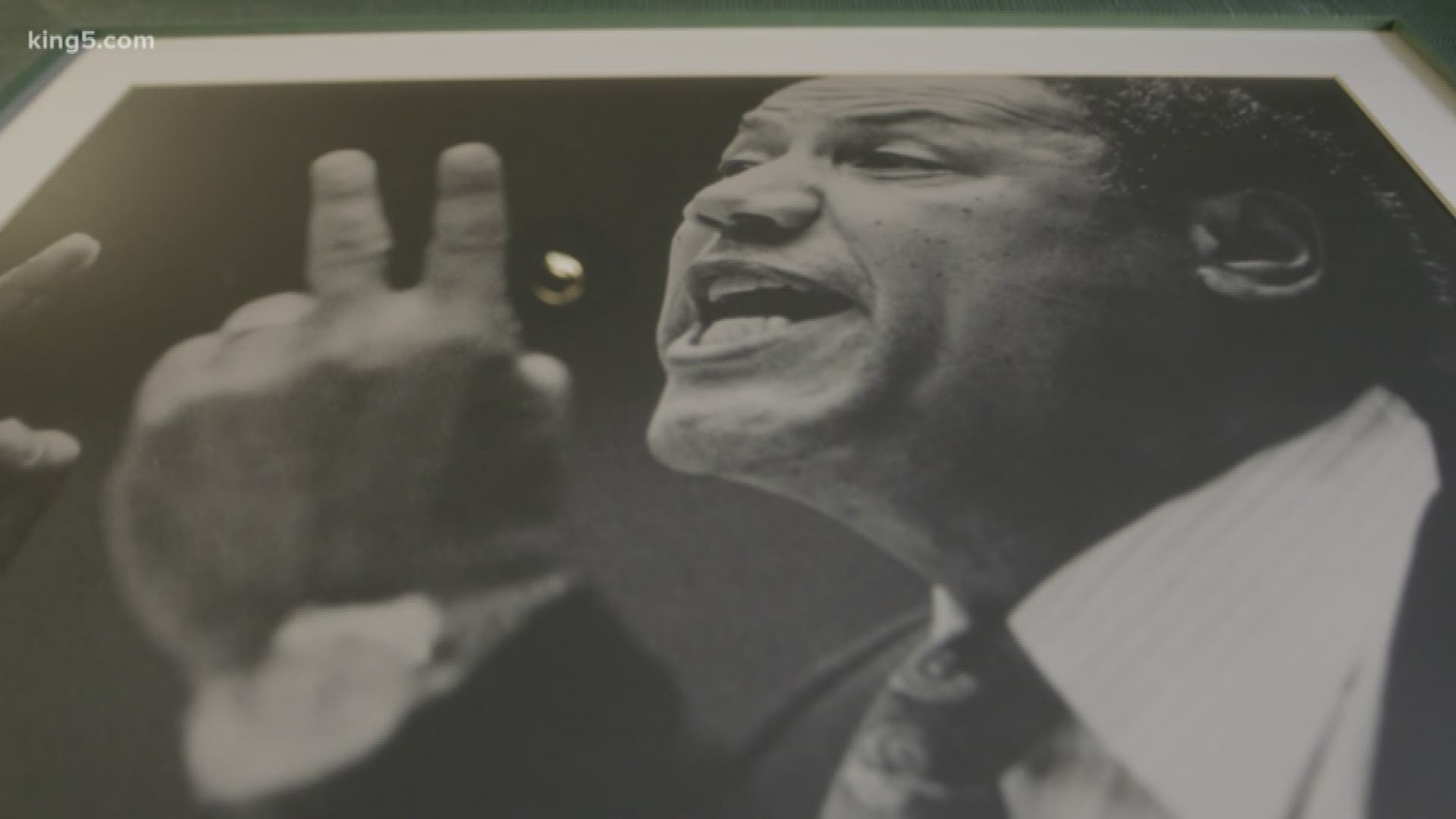Once upon a time, Lenny Wilkens didn't want to come to Seattle.
He was a guy from the Northeast, and the region was about as far away from home as possible. Yet the charming kid raised in Brooklyn fell in love with the place and the people.
"I'm really an East Coaster, but the Northwest reminded me a lot of New England – a lot of mountains, a lot of lakes – the one thing it didn't get as cold as it did back there," he said with a chuckle recalling his arrival back in 1968.
Now known to many locals, simply as "Lenny," the 81-year-old looked relaxed and as engaged as ever as he sat in a Bellevue restaurant to talk about his past and a major decision about his future.
Wilkens announced Monday he will soon end the Lenny Wilkens Foundation, which supports children’s organizations, including the Odessa Brown Children’s Clinic, a Seattle Children's hospital affiliate.
The Sonics legend came to Seattle via a trade and "kicking and screaming" as he says now. A year later, he was the player-coach of the Seattle SuperSonics.
"I didn't know I could get off the ground that good," he said, glancing at a photo of his playing days.
Oh, but he was good.
He was an assist machine and an All-Star nine times. As a coach, he would lead the Sonics to the 1979 NBA Championship, solidifying his place in Seattle history.
"There were 20,000 people or more at the airport, so we had to go to a separate terminal to park, and everybody on the plane thought that was cool," he said. "Two days later we had the parade, and to see that many people come out and not tear up or destroy anything, it was wonderful."
His NBA career led to induction into the Basketball of Fame on three separate occasions as a coach, player, and assistant on the 1992 Olympic Dream Team.
Yet through it all he fueled a passion in Seattle.
"When I first came here, I met a couple of people, a couple of ladies, who were very active in the community, and they sort of adopted me and my wife," he said, "They wanted me to see the clinic."
The Odessa Brown Children's Clinic in Seattle's Central District was the brainchild of its namesake, a community organizer who wanted to provide quality health care for all. Wilkens says he got it right away.
"(They) were providing health care with dignity," he said. "I've always felt that young people are our future. They are tomorrow's doctors, lawyers, commentators, or athletes."
"We need to help young people, to push them to be a part of the community," he continued.
Wilkens says he also understood the importance of the support. His dad died when he was five years old. Wilkens also idolized Jackie Robinson for what he did outside the stadium.
"Jackie Robinson, I was a big Dodgers fan growing up. I went to Ebbets Field, played baseball and got to meet him,” Wilkens said.
"When I was growing up in Brooklyn, there were a lot people who go to become who you are, and I never forgot that," he said.
It is why he has spent countless hours at the clinic and established the Lenny Wilkens Foundation. For nearly four decades, he's helped to raise millions for Odessa Brown, helping the clinic to grow and serve more families.
"It became my passion," he said.
But sometimes, good things must come to an end.
"It's time," said Wilkens.
He will phase out the foundation this summer after a final gala and one last fundraising push. At that event, there will be a celebration of the '79 championship team and of all that Wilkens has accomplished. Forty years after they won it, Wilkens felt there was a perfect synergy in it all.
"We're going out on a high note,” he said. “I, you know, it's time. I've done it for 40 years, giving back, and I think that somebody else will pick up the mantle and go with it. But we've established it. The clinic will have a guild back, and that will make a difference, and that will help. (I) just felt the timing is right, go out while you feel good."
Wilkens said he and his wife Marilyn plan on spending more time with their grandkids and extended family down in Atlanta. Keeping so active in his post-coaching days has limited his time with the family. However, he says the move has nothing to do with his health.
"I feel great; I feel blessed," he said.
The end will also come with a new addition. Odessa Brown and Seattle Children's will break ground on another clinic in the Rainier Valley in this fall. This one will have Wilkens’ name on it. Again, synergy.
Should one call this a retirement, post retirement? There is no kicking and screaming. Wilkens lights up, and the eyes twinkle.
"I'll stay involved, but not to the degree I was,” he said with a smile. “Kind of sort of – I think you know. I deserve it."

